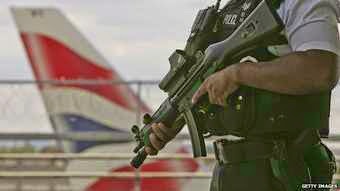About 63 out of the 68 women that were abducted two weeks ago from three villages of Borno State by Boko Haram gunmen have escaped from captivity and made their way back to their homes, witnesses and security officials have said.
Villagers within the hinterlands of Damboa local government area of Borno where the abduction was carried out revealed this to LEADERSHIP yesterday.
“I have just received an alert from my colleagues in Damboa area that about 63 of the abducted women and girls had made it back home. They took the bold step when their abductors moved out to carry out an operation,” said Abbas Gava, an official of the vigilante group.
“We don’t have the details of their escape yet, but we believe God gave them the opportunity at the time the insurgents came in their large numbers to attack Damboa where about 12 soldiers, five policemen, over 50 Boko Haram members and unspecified number of civilians were killed yesterday (Saturday).
“If the information I have is something to go by, we still have five women and girls, among them a nursing mother, that are missing for now,” he said.
A top security officer who preferred not to be mentioned in this report told LEADERSHIP in an interview that half of the women who escaped made it to their homes while others who were found wandering in the bushes near Adamawa State were now in the custody of soldiers in Gulak town.
“It is authentic that the women were able to break out of captivity and escaped back to their homes,” said the officer. “As a matter of fact, the women escaped when the Boko Haram gunmen were out to attack the military base in Damboa. We understand further that the few men left to guard them took time off to rest due to the fatigue of fasting and the women sneaked from behind the fenced building and ran to freedom.”
LEADERSHIP had also gathered that the Borno State police command as well as the military authority who had denied any abduction of the 90 women were trying to conceal information about the escape in order not to be embarrassed.
But feelers from the highest police and military command in Abuja indicated that the security chiefs in Maiduguri had been directed to go to Gulak in Adamawa today (Monday) in order to bring back the women being camped by soldiers there.
On June 22, it was reported that at least 60 women and girls were abducted in a Borno village by gunmen suspected to be members of Boko Haram.
The abduction took place in a village called Kummabza, a farming community not more than 25km away from Lassa town in Askira-Uba local government area of Borno State.
Security officials initially denied the reports that the abduction took place.
But later on, LEADERSHIP learnt, the police mandated a team, at the instance of the Borno State governor, Kashim Shettima, to verify the said abduction. They did, and eventually came up with a figure of 71 women and girls.
The police and the military had described as a hoax an earlier report that some 20 Fulani women were abducted by Boko Haram at a nomads’ settlement called Garkin-Fulani, even as some junior police officers had reliably informed reporters that the abductors were asking for some number of cows in place of every kidnapped Fulani woman in their custody.
Slain Colonel in Borno Attack, Abubakar Shonba Identified
The identity of the army Colonel who died during the encounter between the soldiers, policemen, vigilante group and Boko Haram insurgents in Damboa local government area of Borno State on Saturday has been exclusively revealed to LEADERSHIP.
A top military source confided in LEADERSHIP last night that the name of the gallant soldier who lost his life during the bloody encounter is Col Abubakar Shonba.
According to the source, the late Shonba was the commanding officer 101 battalion, Damboa, in Borno State.














